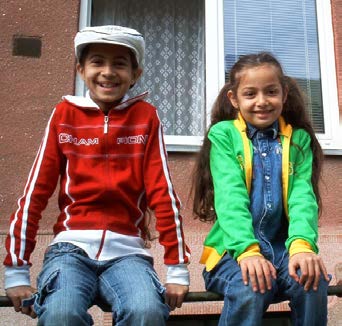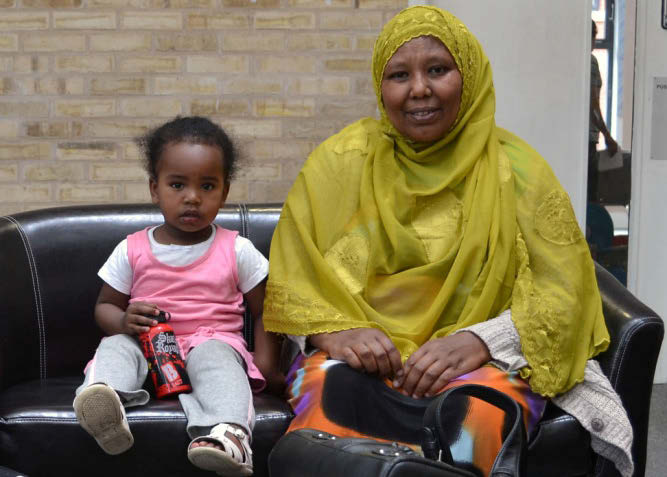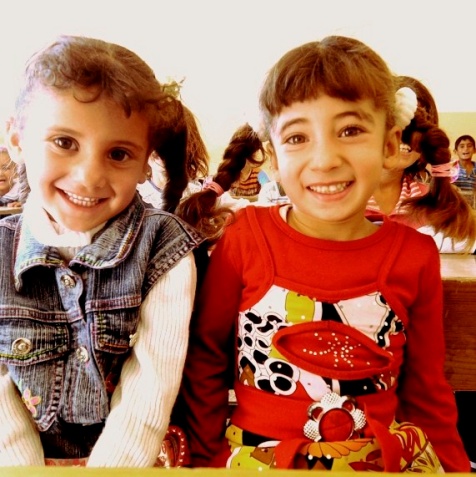Introduction
Living well covers a wide range of topics which enable children, young people and families to thrive and live well.
This unit focuses on Education and Housing as two of the universal issues which affect family life.
There will also be a brief introduction to Private Fostering and an overview of the procedures associated with supporting unaccompanied asylum seeking children.
Q1. Did not know their child could attend the school.
BARRIER
WILFUL
Q2. Have not been offered a place as they have just arrived in the country.
BARRIER
WILFUL
Q3. Will not send a teenage girl to school as she is needed to stay at home to look after her siblings.
BARRIER
WILFUL
Q4. Are not sending the child to school as the parents say he is returning home next month and there is no point.
BARRIER
WILFUL
Q5. Not attending school because the parents say the child left the country two months ago.
BARRIER
WILFUL
Q6. The family are sending the child to school but the child is always thirty minutes late. The family seem surprised when this is an issue.
BARRIER
WILFUL
Housing
 Where families live has an enormous impact on health and on the life chances of children. This is the case for every child and family in the United Kingdom and housing provides an important area of safeguarding.
Where families live has an enormous impact on health and on the life chances of children. This is the case for every child and family in the United Kingdom and housing provides an important area of safeguarding.
Families from migrant communities face housing inequality which has a negative impact on their own health and on the well-being of their children.
Common problems are poor quality housing, overcrowding, low-level of housing rights and higher levels of homelessness.
For a report on the Housing Pathways of new immigrants, see this report from The Joseph Rowntree Foundation.
Housing Quiz
Q1. Which of the following are considered bad housing?
Having to use the space under the stairs as an office
Large damp patches in every room including the children’s bedroom
Only having a front garden.
Q2. What do you think counts as overcrowding?
Two brothers who have to share a bedroom.
Grandmother living with the family in her own room.
Having so few bedrooms that children sleep in kitchens and living rooms.
Q3. Which of the following are physical effects of bad housing on children?
Respiratory problems such as coughing and asthmatic wheezing
Losing sleep.
Increased risk of meningitis and TB.
All of the above
Q4. Which of the following are additional impacts of bad housing on children?
Missing school more frequently due to illnesses and infections
More likely to experience a domestic fire
Greater likelihood of unemployment, and poverty
All of the above
What is Private Fostering?
You need to be aware of private fostering. This is where a child lives in the home with somebody who is not a specific member of their extended family. This can appear complicated. The list below will help you to understand what counts as a private fostering arrangement.
A privately fostered child is a child under 16 (or 18 if disabled) who is cared for:
- ...by an adult in the adult's home for 28 days or more AND
- ...where the adult is not: a parent, step parent, grandparent, aunt, uncle, sister or brother.
 A private foster carer may be a cousin or great aunt, friend of the family, or someone who has agreed to take care of the child by private arrangement without the involvement of the Local Authority. A child who is ‘looked after’ by a local authority or placed in a children's home, hospital or school is not privately fostered. In a private fostering arrangement, the parent still holds Parental Responsibility.
A private foster carer may be a cousin or great aunt, friend of the family, or someone who has agreed to take care of the child by private arrangement without the involvement of the Local Authority. A child who is ‘looked after’ by a local authority or placed in a children's home, hospital or school is not privately fostered. In a private fostering arrangement, the parent still holds Parental Responsibility.
Do you know of a child being privately fostered?
Whether you’re a neighbour, nurse or anyone else who has contact with children there are some signs to look out for. Use our checklist to see if you’d spot them.
In the neighbourhood:
- A child you don’t know suddenly appears next door
- A child you know from the neighbourhood suddenly disappears
- Your neighbour has lots of different children staying with them at different periods in time
In the doctor's surgery:
- A patient turns up with a child you haven’t seen before
- A patient turns up with many different children on a regular basis that they refer to as a ‘nieces’ or ‘nephew’
- A child mentions that the person they are with is not their parent
At school:
- One of the parents at your school has turned up with a ‘niece’ or ‘nephew’ who is staying with them for a little while
- A child in your class suddenly disappears without warning
- A child in your class mentions that they are staying with a stranger or distant relative
If you answered ‘yes’ to any of the questions then there is a possibility that a child is being privately fostered.
 Chances are that everything is fine but it is still a legal requirement for the local council to be notified, so please don’t ignore it. Here are some suggestions on what you should to do.
Chances are that everything is fine but it is still a legal requirement for the local council to be notified, so please don’t ignore it. Here are some suggestions on what you should to do.
In the neighbourhood: Either speak with your neighbour, if appropriate, or contact children’s services at your local council. If you don’t feel comfortable talking to children’s services there are a number of charities you can talk to first.
In the classroom and at the doctors: It may be possible that the child is being cared for by a relative but these terms can be used loosely. If in doubt you should ask to see birth certificates and/or asylum registration cards.
It is likely that everything is fine, but it is still a legal requirement for the parents and carers to notify their local council, so please don’t ignore it. Either speak with the child’s carer and ask them if they have notified the local council of the arrangement, or, if appropriate, or contact children’s services at your local council.
Many thanks to CoramBAAF for allowing the use of their materials here. See their website on private fostering for more information.
When to notify the Local Authority
- At least 6 weeks before the arrangements are to begin, but not more than 13 weeks before.
- Immediately if it is to begin within 6 weeks and definitely within 48 hours of the proposed start date.
- Immediately once a person is aware of a private fostering situation.
- Make sure you know the relationship between an adult and a child. Don’t assume that the person you are speaking to is the parent without asking them.
- Be absolutely clear what the relationship between the child and the adult is. ‘Aunty’ is a term of respect for an older woman in many African and Asian cultures. Make sure you understand if an ‘Aunty’ is a female relative or a family friend.
- Don’t be surprised if a child or teenager is living with another relative or family friend. This is quite common in many cultures. Do make sure you clarify who the child is living with and where.
- Always document any information about carer/guardian and address which comes out of these discussions.
- Always notify your local authority about private fostering arrangements. It is an offence not to.
Trafficking is...
...the recruitment, transport or sale of human beings into sexual exploitation, forced labour and domestic servitude.
This is human rights abuse and an issue of global concern. The 2017 report, Global Estimates of Modern Slavery, found that on any given day in 2016, 40 million people were victims of modern slavery and one in four victims were children.
Every Child Protected Against Trafficking (ECPAT UK) is a leading children's rights organisation working to protect children from trafficking and transnational exploitation. They provide a wide range of online training courses relating to modern slavery, trafficking and exploitation for individuals and organisations.
Other resources include:
- A handbook for professionals - Practical guidance on preventing and responding to trafficking and disappearances of children in migration.
- A child friendly leaflet and short film in 11 languages aimed at informing child trafficking victims about their rights and how to find help.
- Films for practitioners.
 Find more useful tools from ECPAT here.
Find more useful tools from ECPAT here.
To raise awareness and enable organisations to promote safeguarding children who may have been trafficked, ECPAT UK welcome requests for the link and our logo to be placed on appropriate websites.
Many thanks to ECPAT for allowing the use of their materials here.
Why do children come to the UK alone?
To seek asylum for many of the same reasons as adults.
Most commonly children arrive to escape from war, civil unrest and persecution. Children may have seen family members tortured or killed.
Consider the questions below then click to reveal the answers.
Parents may find or pay someone willing to take their child out of their country in the hope that they may find safety elsewhere. Sending their children to safety may be the last act parents are able to perform.
Children often arrive in the UK with no identification or proof of age, nationality or evidence of the reasons for fleeing their home. They may come from countries where date of birth was not considered important, or age was counted in a different way – or unknown.
Yes: The Home Office defines an unaccompanied child as “a person who, at the time of making the asylum application, is under 18 years of age or who, in the absence of documentary evidence, appears to be under that age, and who is applying for asylum in his/her own right and is without adult family member(s) or guardian(s) to turn to in this country.”
In summary, experiencing certain types of abuse, risk or exploitation does not automatically mean an individual is defined as ‘a vulnerable adult’ in safeguarding terms. However, certain types of abuse are more likely to be experienced by people who are vulnerable adults due to their physical and mental health. Domestic abuse is an example of this.
A holistic understanding of the situation is fundamental to accurately being able to classify and support those who are vulnerable.
Case study: Aslem
Unaccompanied asylum seeking children

Aslem arrived in the UK from Afghanistan nine months ago. His home in southern Afghanistan has been locked in violence for years. After his parents were killed, Aslem’s brother arranged his journey through an agent. There was only enough money for one of them to travel.
Aslem’s journey involved walking through mined and dangerous terrain for days at a time; he started with a group and an agent. Not all of the group made it. It took Aslem 4 months to reach the UK.
He spent time in Iran and Turkey, travelled jammed into the back of lorries and finally arrived exhausted and confused: “They never tell you anything. Then the lorry was opened at the port and the police told us ‘UK’.”
During his initial interviews, Aslem was withdrawn and became angry on several occasions when the officials queried his age. UKBA therefore contested Aslem’s age, stating they felt he was over 18.
As he was not processed as a ‘minor’, Aslem was placed in a detention centre in adult accommodation with no additional support. He had no access to education; no English classes.

Aslem was involved in several fights at the detention centre, including one with the man sharing his room. Fortunately, Aslem’s lawyer challenged the initial age assessment, which had been based primarily on attitude and physical appearance and eventually had the case reviewed and the age assessment overturned.
Once the authorities had agreed that Aslem was a child, they passed him onto the Local Authority Children’s Services.
However, as Aslem was 16, he was not offered foster care under Section 17 of the Children’s Act, but placed in supported lodgings with other young unaccompanied asylum seekers (Section 20). Here, Aslem has the possibility of going to college, learning English or following other courses.
Aslem’s asylum claim continues. Aslem has had no contact with his brother and feels going back is not an option for him, whatever the consequences.
Consider the questions below then click to reveal the answers.
Aslem will need continued legal advice and support.
- Find out whether his solicitor will keep Aslem’s case on.
- Refer Aslem to legal advice organisations: he needs to know his options.
- See additional information handout by the Refugee Council.
Aslem’s situation is very fluid; he needs adaptable, flexible, understanding and vigilant services.
A trained and professional interpreter will be necessary. It will be important to monitor Aslem’s non verbal reactions: do you feel that Aslem’s concerns are being conveyed and treated with respect?
Be clear about your role and capacity without raising expectations (eg: regarding the asylum case). Be consistent.
Aslem might be weighing his options of going underground, away from the sights of the authorities, rather than being sent back to Afghanistan. Be clear with him about what this will mean and listen to his responses.
His relationship with the other young people and support staff at his accommodation will have some influence over how he settles. Find out: Is he happy there? What are the issues? Are there any practical solutions you can find with him?
Befriending organisation/projects might be useful to help Aslem engage with education and resilience building social activities. Be aware that Aslem may feel that he wants to withdraw from statutory supported groups due to his precarious immigration status.
Sports/activity programmes with the focus away from asylum – balanced with groups that allow young asylum seekers to meet, which may help to deal with isolation.
By joining the library, he could access the internet and might be able to contact his brother. If not, the Red Cross Messaging and Tracing Programme may be able to do so.
Some groups are set up to work with unaccompanied asylum seekers specifically organising advice, drop ins, support in education and social activities, signposting to groups which can help with wellbeing and mental health. Others are centred around refugee community groups. What is available in your area?
Organisations such as the Refugee Council and ICAR will be able to provide you with information. Go to the Resource section for more details.
Also see: https://www.refugeecouncil.org.uk/get-support/services/childrens-advice/
The Children’s Advice Project
Refugee Council provides a service called The Children’s Advice Project for unaccompanied children seeking asylum. Advisers work directly with separated children seeking asylum and also offer advice and information to carers and other professionals working with unaccompanied children and young people.
There are a number of drop-in surgeries around the country where you can access the service. Find out more here.
Know your local procedures
- You should be able to download guidance on your local procedures on Safeguarding Migrant children and young people.
- This will include a section on unaccompanied minors/asylum seeking children.
- Multi-agency guidance and is usually held by local Safeguarding Children Boards. It is essential that you familiarise yourself with your local guidance and procedures. For an example, go to
- It is best to do this on-line. This means that you will always be reading the most up-to-date policy or protocol.
- If you are not sure of where to find your procedures then carry out a simple on-line search. Search for the name of your town/city with the words safeguarding children board (e.g. Bristol safeguarding children board)
Unaccompanied asylum seeking children: Quiz
Q1. Who is an ‘unaccompanied asylum seeking child’?
An economic migrant with a child
A child under 18 who comes to the UK to flee from war, civil unrest or persecution who is not with a parent or family member
A child whose parent has paid the airline for them to travel home for half-term without adult supervision.
Q2. What type of identification is an asylum seeking child likely to have?
No identification and nothing proving their origin or age.
A full set of dental records
A passport and two proofs of address
Q3. Where would you be most likely to find local guidance on unaccompanied asylum seeking children?
Local Safeguarding Children Board
Area Child Protection Committee (ACPC) Policies and Procedures
Police Complaints Authority
Q4. Who should assess the needs of an unaccompanied child?
Whoever finds them
Social Services
The UK Border Agency
Summary
- You should now have an understanding of some of the issues facing migrant children and families in relation to housing, education and private fostering.
- You should have an understanding of trafficking and the process linked to unaccompanied asylum seeking children.
- You should also have an understanding of some of the longer term impact of these safeguarding issues on the future health and life chances of children.
